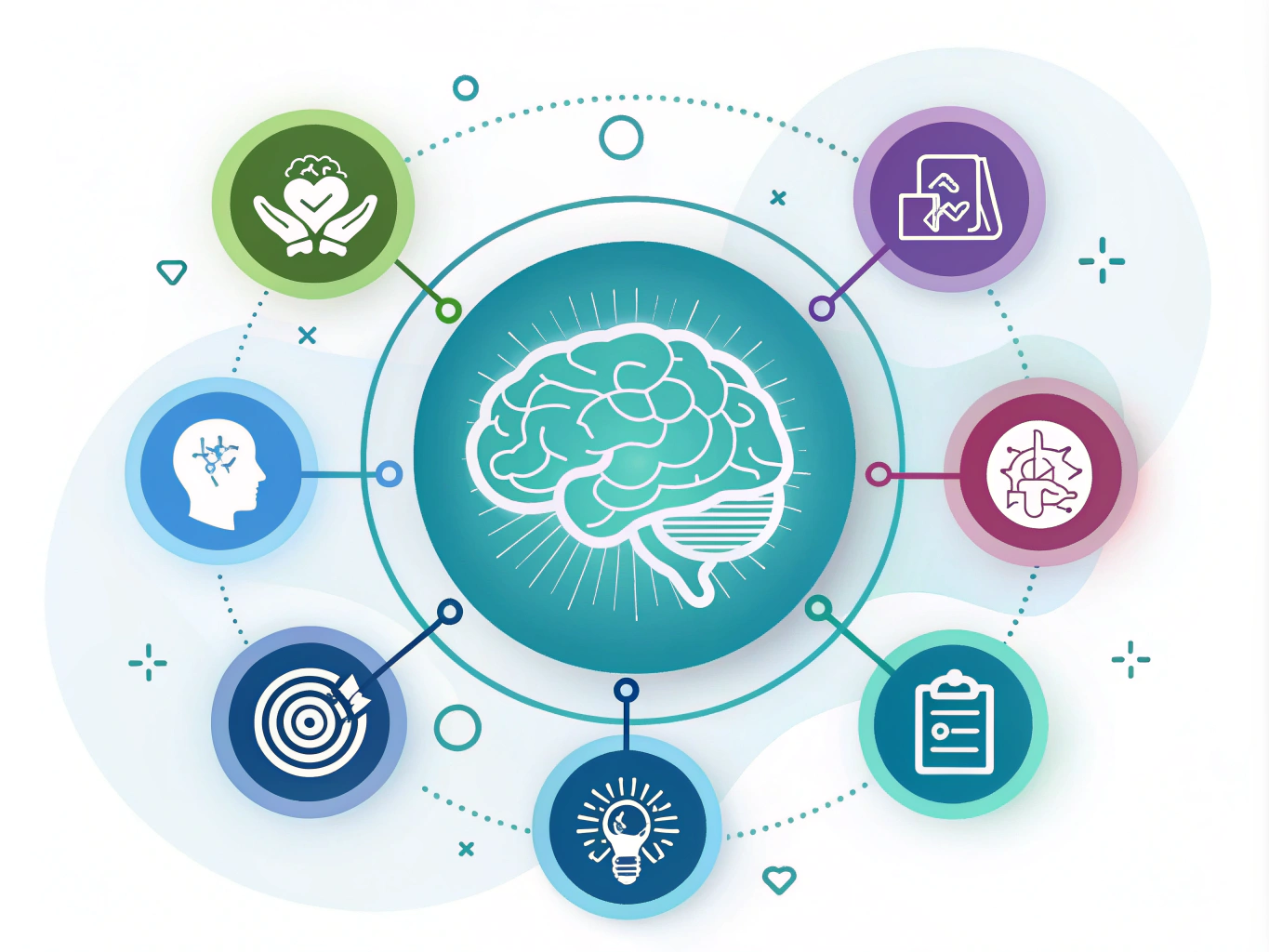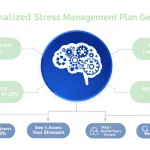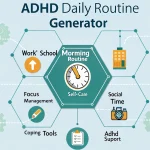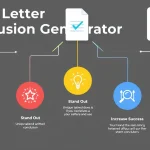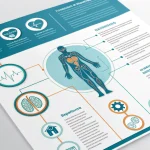Mental Health Guide Generator
Is this tool helpful?
How to Use the Mental Health Guide Generator Effectively
Follow these clear steps to create a personalized and insightful mental health guide tailored to your needs:
- Define Mental Health: Enter a concise explanation of mental health emphasizing its role in daily life. For example:
- “Mental health involves how we handle emotions, stress, and relationships, impacting our overall quality of life and decision-making.”
- “It reflects emotional resilience and the ability to adapt to change and recover from setbacks.”
- Identify Common Mental Health Challenges and Symptoms: List typical mental health disorders and their symptoms to build awareness. Sample inputs:
- “Post-Traumatic Stress Disorder (PTSD): flashbacks, hypervigilance, nightmares.”
- “Bipolar Disorder: mood swings between depression and mania, impulsivity.”
- Describe Preventative Measures: Suggest steps to maintain mental wellness and reduce risks. Alternate examples:
- “Engage in regular social activities, limit alcohol consumption, practice gratitude journaling.”
- “Maintain a balanced routine with relaxation techniques like yoga and scheduled downtime.”
- List Effective Coping Strategies: Detail practical methods for managing stress, anxiety, and depression. Example inputs:
- “Use guided imagery, schedule brief walks during work breaks, and practice affirmations.”
- “Develop time management skills to reduce overwhelm, use grounding techniques during panic episodes.”
- Explain When and How to Seek Professional Help: Provide guidance on accessing mental health services and types of specialists. Sample entries:
- “Contact licensed counselors for talk therapy, psychiatrists for medication management, or peer support groups for community connection.”
- “Explore teletherapy options and crisis intervention resources in your area.”
- Offer Tips for Supporting Others: Share actionable advice for helping friends or family members coping with mental health difficulties. Examples:
- “Stay patient and listen actively, avoid minimizing their feelings, and encourage involvement in professional support.”
- “Respect their need for space while regularly checking in and offering practical help.”
- Include Additional Resources (Optional): Add books, websites, and hotlines for further information or immediate support. Examples:
- “Substance Abuse and Mental Health Services Administration (SAMHSA) Helpline: 1-800-662-HELP.”
- “Books: ‘Mind Over Mood’ by Dennis Greenberger and Christine Padesky, and the ‘Calm Clinic’ website.”
- Generate Your Guide: After completing each section, click the generate button to receive a tailored, easy-to-understand mental health guide based on your inputs.
- Review and Use Your Guide: Read through the generated content carefully. Use the copy feature to save the guide for personal reference, sharing with others, or initiating conversations about mental health.
Introducing the Mental Health Guide Generator: Purpose and Benefits
The Mental Health Guide Generator is a user-friendly digital tool designed to help you create a personalized, comprehensive resource focused on mental wellness. By combining your input with evidence-based recommendations, it delivers a meaningful guide tailored to your unique concerns and interests.
Key Features and Advantages
- Customizable Content: You shape the guide by providing definitions, examples, and strategies that fit your perspective and experiences.
- Wide-Ranging Coverage: The tool addresses essential mental health topics, including symptoms, coping methods, professional help, and support systems.
- Educational Insight: Through active participation, you gain a deeper understanding of mental health concepts and resources.
- Accessible Format: Complex ideas are broken down in a clear, approachable format suitable for all knowledge levels.
- Empowerment Through Knowledge: The guide encourages you to take charge of your mental well-being by providing practical, actionable information.
- Applicable Across Settings: Use it personally, share with loved ones, or incorporate it into workplace wellness and educational initiatives.
Practical Uses of the Mental Health Guide Generator
This tool fits diverse situations where mental health awareness and support are priorities. Consider these applications:
1. Personal Mental Wellness Planning
Create a customized mental health roadmap addressing your specific challenges, coping mechanisms, and professional resources, helping you stay proactive and organized.
2. Supporting Family and Friends
Develop a shared understanding within families or support groups by collectively inputting information about conditions, care tips, and helpful resources.
3. Workplace Mental Health Initiatives
Human resources can use the generator to design tailored mental wellness guides that fit their company culture, highlighting stress management and available support programs.
4. Educational Settings
Teachers and counselors can prepare age-appropriate mental health guides for students, focusing on common issues and promoting resilience and peer support.
5. Community Outreach and Awareness
Organizations can create targeted resources addressing mental health challenges prevalent in their communities, such as guides for shelters, youth centers, or recovery programs.
Important Disclaimer
The calculations, results, and content provided by our tools are not guaranteed to be accurate, complete, or reliable. Users are responsible for verifying and interpreting the results. Our content and tools may contain errors, biases, or inconsistencies. Do not enter personal data, sensitive information, or personally identifiable information in our web forms or tools. Such data entry violates our terms of service and may result in unauthorized disclosure to third parties. We reserve the right to save inputs and outputs from our tools for the purposes of error debugging, bias identification, and performance improvement. External companies providing AI models used in our tools may also save and process data in accordance with their own policies. By using our tools, you consent to this data collection and processing. We reserve the right to limit the usage of our tools based on current usability factors.
